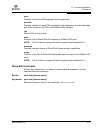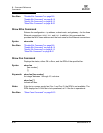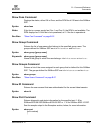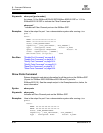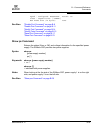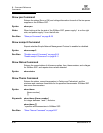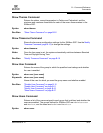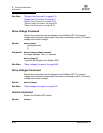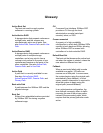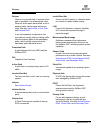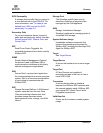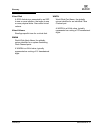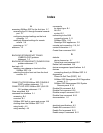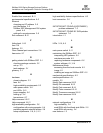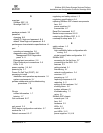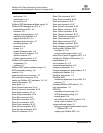
SN0054628-00 A Glossary-1
Glossary
Active Boot Set
The boot set used to supply system
software in a running system.
Active/Active RAID
A storage device that presents volumes on
multiple ports, and the volumes are
simultaneously active on all ports. See
also Active Path, Passive Path, and In Use
Path.
Active/Passive RAID
A storage device that presents volumes on
multiple ports of multiple storage
controllers, and at any point in time a
volume is only active on the ports of one
controller and passive on the ports of the
other controllers. See also Active Path,
Passive Path, and In Use Path.
Active Path
A path that is currently available for use.
See also Active/Active RAID,
Active/Passive RAID, Passive Path, and
Primary Path.
Back-side Path
A path between the SANbox SSP and the
physical storage.
Boot Set
Either of two selectable locations provided
by SANbox SSP for storing a system
software image.
CLI
Command Line Interface. SANbox SSP
provides a CLI through the local
administrative console (serial port
console), telnet, or SSH.
Cross-connected
A property of a high-availability
configuration in which both SANbox SSPs
connect to both back-end SANs, allowing
either SANbox SSP to access both
controllers of a dual-controller RAID.
Default Boot Set
The boot set that becomes the active boot
set when the system is started, unless the
user selects a different boot set.
Failback
When a previously failed path is made
available once again, I/O traffic can
resume use of that path. In some cases,
the system begins using the original path
automatically (auto-failback). In other
cases, operator intervention is required to
allow the system to begin using the
original path (manual-failback).
In an active/passive configuration, the
term failback commonly refers to traffic
resuming the use of the primary paths,
instead of the secondary paths, which
requires that the primary paths be made
active.



